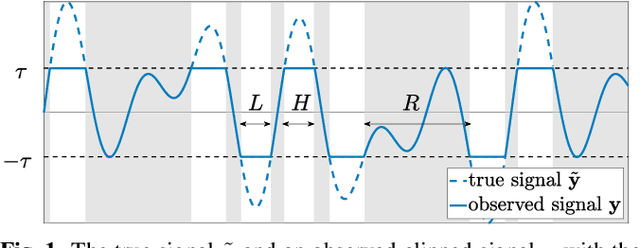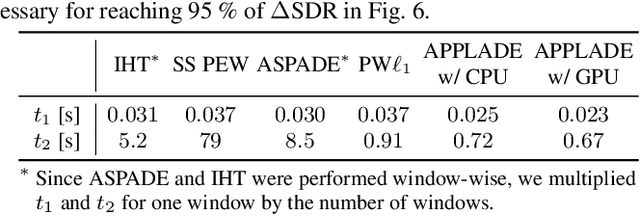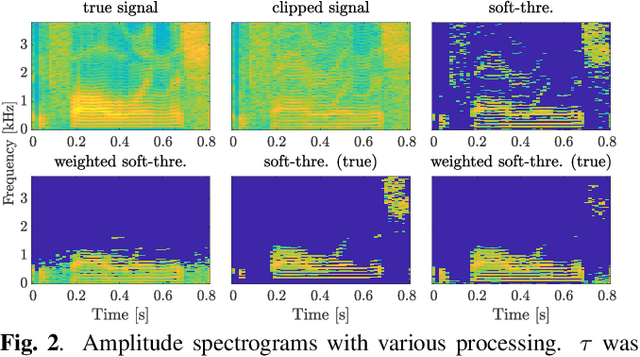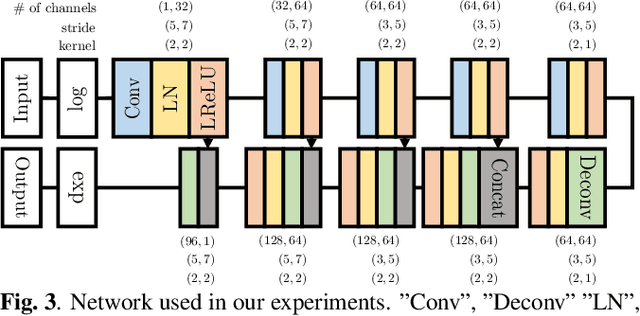Tomoro Tanaka
APPLADE: Adjustable Plug-and-play Audio Declipper Combining DNN with Sparse Optimization
Feb 16, 2022



Abstract:In this paper, we propose an audio declipping method that takes advantages of both sparse optimization and deep learning. Since sparsity-based audio declipping methods have been developed upon constrained optimization, they are adjustable and well-studied in theory. However, they always uniformly promote sparsity and ignore the individual properties of a signal. Deep neural network (DNN)-based methods can learn the properties of target signals and use them for audio declipping. Still, they cannot perform well if the training data have mismatches and/or constraints in the time domain are not imposed. In the proposed method, we use a DNN in an optimization algorithm. It is inspired by an idea called plug-and-play (PnP) and enables us to promote sparsity based on the learned information of data, considering constraints in the time domain. Our experiments confirmed that the proposed method is stable and robust to mismatches between training and test data.
 Add to Chrome
Add to Chrome Add to Firefox
Add to Firefox Add to Edge
Add to Edge